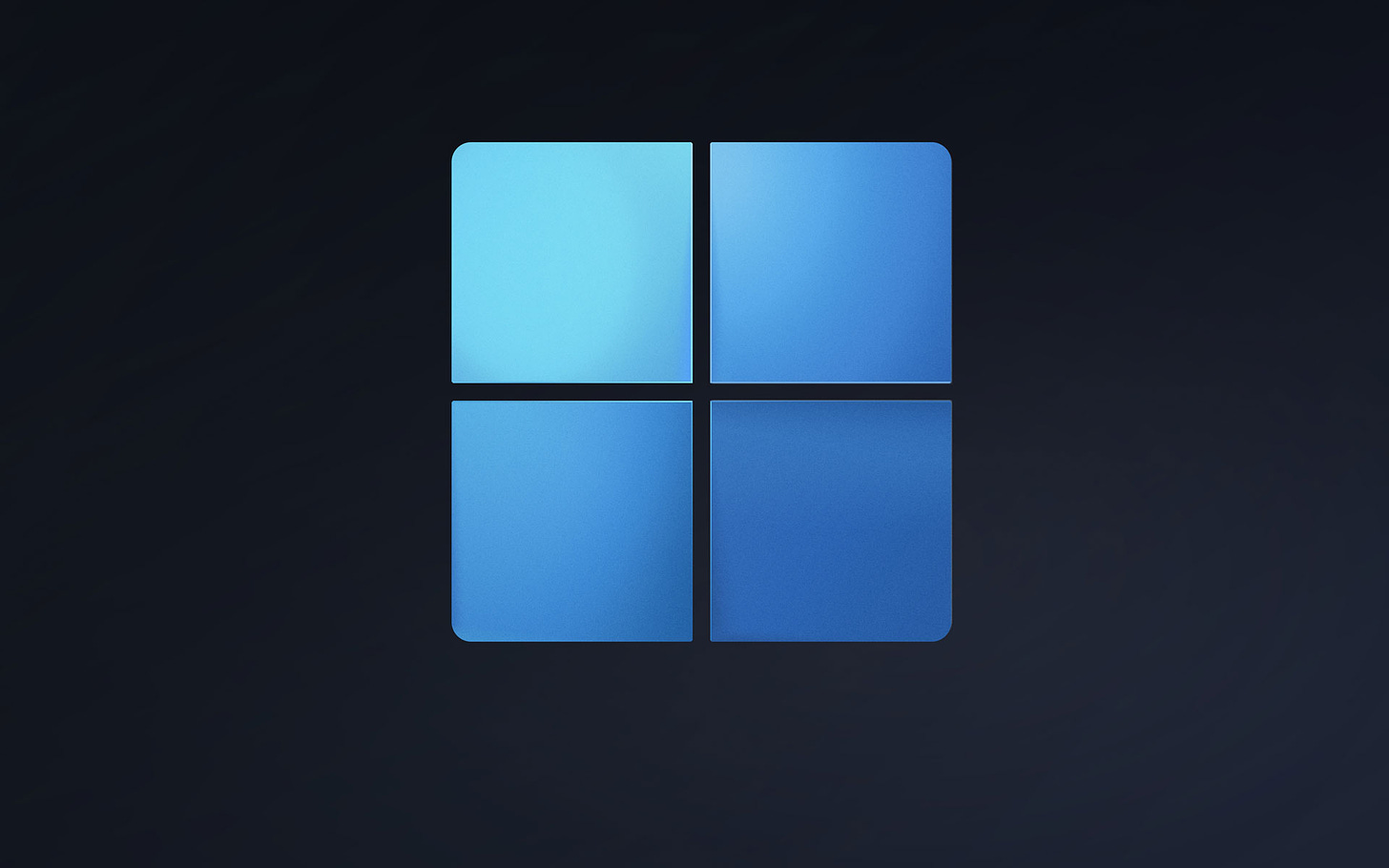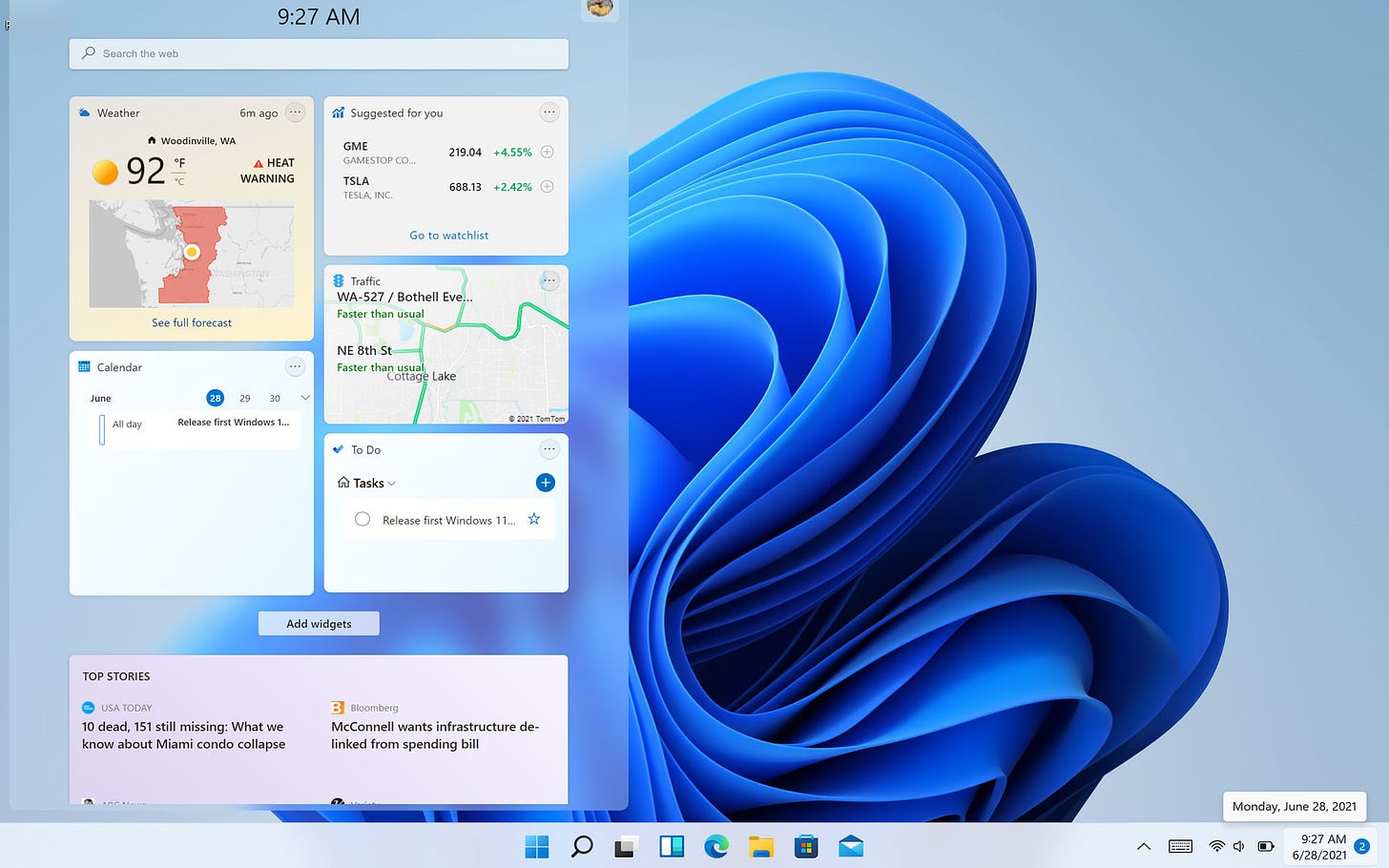Windows 11 is already, on multiple levels, a failure
All the reasons why rated from disappointing to frustrating to unacceptable

It's been almost a month since Microsoft officially released its latest operating system for personal computers, Windows 11, to the public and - now that the dust has settled, more or less - we can all take a step back and make an assessment of the Redmond giant's efforts regarding this product. To note that the successor to Windows 10 had a bumpy ride for months on end, for a variety of reasons, would be an understatement. All of which had to do, unquestioningly, with Microsoft's choices. The new operating system is now in the open, though, reviewed by many outlets, tested by many consumers in real-world use cases (both on new PCs and on upgraded ones), benchmarked, analyzed and commented upon.
Windows 11 is now a known quantity. It is also a failure by any metric that matters.
Both as a successor to Windows 10 and as an operating system regardless of everything else, this new version of Windows had a set of specific goals to achieve. To launch at an acceptable level of quality. To offer some tangible performance improvements (on modern machines at the very least). To bring to the table a number of new features worth upgrading for. In short, to be a meaningful step forward for the Windows ecosystem as a whole.

Well, let's see what a few publications had to say about Windows 11. Steven Vaughan-Nichols over at Computer World calls Microsoft's latest operating system "a pointless update" as he, after weeks of testing it, "has yet to find a real reason to use it". Wes Fenlon and Dave James over at PC Gamer both like it, although "there aren't many reasons to install on day one, but there are a lot of reasons to wait". Alex Wawro over at Tom's Guide admits that "it's simpler and more streamlined" but also notes that "it's not finished". This is the exact same sentiment expressed by Tom Warren over at The Verge: Windows 11 "offers a modern UI" but "it's missing promised features" and is "a work in progress".
Let that sink in for a bit. An operating system offered to millions of consumers to install on their computers and use daily is unfinished and a work in progress. On top of that, all reviewers, including the above and many more working for other publications, disliked different things about Windows 11 - be it the taskbar changes, the UI inconsistencies, the useless widgets etc. - but most agreed on this: Windows 11 is not a necessary upgrade by any means. Certainly not now, when almost every interesting new feature announced for this operating system - from Android apps to DirectStorage to Dynamic Refresh Rate to Audio/Visual Input Management - is not yet available.

So let’s get back to that checklist. Did Windows 11 launch at an acceptable level of quality? Based on what was promised, no: it did not suffer from some data-destroying, system-breaking problem (thank God for that), but it did require quick fixes (such as the AMD-related and the memory-leak related ones) and there's still work to be done on its user interface and a number of features did not make the cut for launch. Did Windows 11 offer tangible performance improvements? All reviewers and consumers agree on that: no. Regardless of the type of systems compared, Windows 10 and Windows 11 are almost identical in real-world use of programs and games. That's the case for current PCs and there's only hope, not any certainty, that it won’t be the case for future ones.
OK, then, but... wait. Even incomplete, even without the performance improvements Microsoft promised, maybe Windows 11 brought to the table enough new features worth upgrading for. Did it? Well, no. The new user interface is nicer but does not make anything in the way Windows work actually better or easier (many would claim it did the exact opposite in some respects). Bolstered security is always a good thing, but Windows 11 has not yet offered any proof as to how the strict hardware requirements the company imposed make a difference in practice compared to Windows 10. And some usability improvements here and there are just too small, too "just nice to have" to make this what most people consider an actually interesting, important upgrade.

No wonder, then, that Windows 11 has failed to ignite any real excitement so far. Doing the rounds on websites, forums and comments sections one can easily tell that the hype around Microsoft's new operating system did not last for more than a few days around its launch date. As soon as most media outlets agreed on not recommending an immediate upgrade from Windows 10, public interest waned. It became apparent that it's just not a big deal after all. What's worse, Windows 11 turned out to be the marketing ploy many thought it was from the very beginning: a new lick of paint over an old interface, coupled with additions and improvements that could have been condensed into a feature update, held together by the concept of better security... all just to force more people than usual to buy new PCs.
While following what proved to be a trainwreck of a pre-launch period for Windows 11, yours truly published a story titled "Windows 11 Must Be Absolutely Perfect. If It’s Not, It’s a Failure", meaning that Microsoft owed people a great operating system after what Windows 10 put them through during the last few years. As it turns out, this was never on the cards. Windows 11 is what we'd call a Windows 10 Service Pack 1 back in the day - and, as a Service Pack, it would be awesome. As a whole new operating system, though, Windows 11 is already a failure - one that Microsoft will have to live with for the next five years. It's just too bad that we'll have to live with it as well.




In my opinion Windows 11 was not needed. When Microsoft introduced Windows 10 they made it clear this version would be it and a infinite rolling updates would happen. Then they decide they needed a new version but with some serious locked down requirements which created a boat load of devices unable to ever upgrade and get stuck with Windows 10. This has to be the dumbest move Microsoft has ever made and continues to double down on this decision.